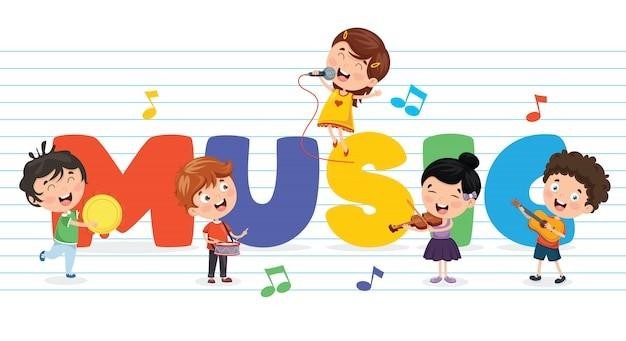“Music gives a soul to the universe, wings to the mind, flight to the imagination and life to everything.” – Plato
Rationale: Purpose of Study (taken from the National Curriculum)
Music is a universal language that embodies one of the highest forms of creativity. A high quality music education should engage and inspire pupils to develop a love of music and their talent as musicians, and so increase their self-confidence, creativity and sense of achievement. As pupils progress, they should develop a critical engagement with music, allowing them to compose, and to listen with discrimination to the best in the musical canon.
Intent
At Nanpean School, we believe that every child should experience a music education which engages and inspires pupils to develop a love of music and fosters their talent as musicians, increasing their self-confidence and creativity. As a result, we aim to provide a Music Curriculum that will enable each child reach their full potential in the subject. We also aim to encourage children to develop an enjoyment and sense of positive wellbeing through a shared love of singing, composing and performing, and we provide many opportunities for our children to perform in front of an audience, both in school and externally to school at community events. We are also aware of the positive impact and potential of Music to ensure pupils develop leaderships skills, team-working strategies, concentration and problem-solving skills.
Implementation
Music is greatly valued at Nanpean School, and we view it as a means for children to express themselves. In order to do this, we follow the breadth of the programmes of study of the National Curriculum for Music
The children are involved in activities which develop their skills of listening, singing, playing, analysing, evaluating and composing. They also have opportunities to develop an understanding of musical terms and notation. .
Each unit of work comprises strands of musical learning which correspond with the National Curriculum (NC) for Music:
- Listening and Appraising
- Musical Activities (a: warm up games, b: optional flexible games, c: singing, d: playing instruments, e: improvisation, f: composition)
- Performing
When covering these units of work, musical activities are based around a song and singing is therefore at the heart of all our musical learning, as well as playing instruments to accompany the song to be learnt (tuned / un-tuned percussion). A sound before symbol approach is used but scores provide children with an understanding of notation. Performing and sharing also happen within the unit, with the children working towards an end of unit performance.
Through the teaching of Music at Nanpean School we:
- Ensure children are introduced to a variety of musical genres, historical periods, styles and traditions of music.
- Ensure children understand the value and importance of music and we try to incorporate it into other Curriculum areas, where appropriate.
- Work collaboratively with music providers such as AsOne (Cornwall Music Hub) which provide us with opportunities to take part in Music festivals, performances and for specific instrument teaching to take place in school.
- Allow children to express their feelings and emotions through Music.
- Plan for good progress in relation to knowledge and skills.
- Work collaboratively to evaluate and improve performances.
Impact
Opportunities to perform to others ensure our children understand the place of Music within the wider worlds and these opportunities excite and inspire our children and foster their participation and gaining of knowledge and skills within the subject. Pupil Conferencing during 2023-24 has shown:
- Children from all backgrounds enjoy and value Music lessons and learning. This clearly has a positive impact on their creativity, self-esteem and general wellbeing.
- Children have developed in their knowledge and skills in relation to Music. They can talk confidently about their recent learning though some children don’t always remember more distant learning.
- Children have knowledge of Musicians and genres of Music, and can explain how this has been shaped through history and culture.
- Children are becoming more confident at comparing their own performance with others’, contributing to evaluations which result in further developments for themselves and other children.
British Values
At Nanpean School, children learn, from a very young age, the need to establish clear rules (thus linking to ‘The Rule of Law’) when listening, performing and composing.
Children are encouraged to make choices about the music they like to listen to or perform, which links to ‘Individual Liberty’.
Regardless of their choice of music, children are shown ‘Mutual Respect’ in relation to their individual preferences and performances during activities.
Children are also encouraged to appreciate music from various cultures and traditions around the world and to celebrate how this contributes positively to societies as well as the impact it has had on British Music. When doing so, children show ‘tolerance’ and ‘mutual respect’.
SMSC
Much of our Music Curriculum enables links to cultural learning, through our children developing an awareness of how Music and Musicians have influenced, or been influenced by, and shaped cultures. Children are also made aware of the social aspect of taking part in Music activities.
How you can help your child at home
Why not embrace your child’s enthusiasm for Music by listening to music and singing songs? How about linking with DT and using scrap objects to create your own musical instruments? If you do this, why not consider making a family band and sharing your music with others?
The following websites could also be used to support your child in their musical development:
https://musicplace.com/learn-more/educational-resources/38-interactive-music-websites
https://www.primarytimes.co.uk/devon/online-music-resources-for-families


